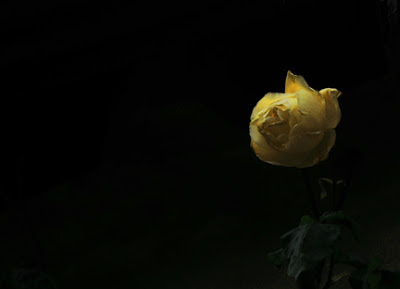The great Giambattista Marino did not die that afternoon, nor the next– he whom the combined spokesmen of Fame (to borrow an image dear to him) had proclaimed the new Homer and the new Dante. The silent and unalterable event that was now taking place was truly the last of his life. Crowned in glory and long life, the man was dying…A woman has placed a yellow rose in a vase. The man mutters to himself the inevitable lines that at this point, to tell the truth, he finds a little boring:
Garden’s purple, prairie’s pomp
Yellow yolks of spring and eye of April…
It was at that moment that the revelation took place: Marino saw the rose, the way Adam must have seen it in Paradise. He sensed that it existed not in his words but in its own timelessness. He understood that we can utter and allude to things but not give them expression, that the proud tall volumes that made a golden shadow in the corner of his room were not the world’s mirrors, as his vanity figured, but simply other objects that had been added to the world.
This realization came to Marino on the eve of his death, as it had perhaps also come to Homer and Dante.
– A Yellow Rose by Jorge Luis Borges, from 'The Maker'. Translated by Kenneth Krabbenhoft.



















No comments:
Post a Comment